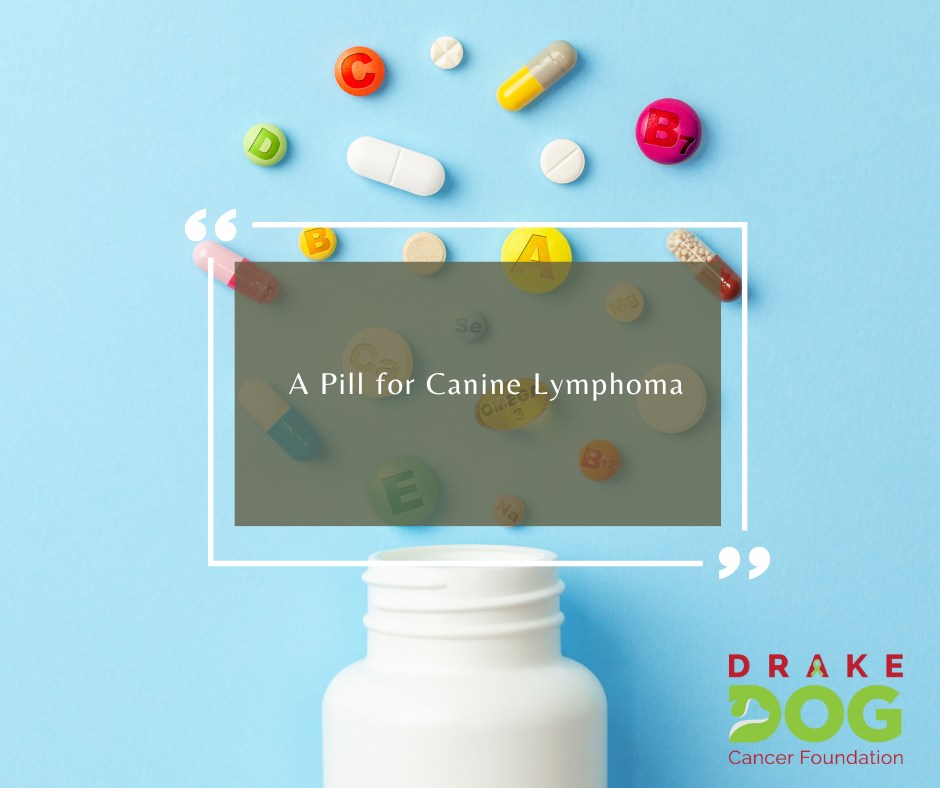Laverdia for dogs is a pill that can help treat lymphoma in dogs. Laverdia is a new treatment, so we don’t have all the answers to questions yet, but future research will resolve those over time. For now, it’s definitely something to discuss and look into.
While lymphoma is one of the more treatable canine cancers, we are continuously on the search for new medicines that can help the unfortunate dogs that either do not respond to present treatments or do not have access to them due to financial or geographical constraints.
What Laverdia Is
Laverdia Ca-1 (verdinexor) was originally developed by a company working on human cancer treatments. It was discovered that this medicine worked better in dogs than in humans and Anivive Lifesciences, purchased the medication. Since the purchase, they have been working toward full FDA approval.
This chemotherapy medication comes in the form of a coated tablet. Owners can administer it at home twice a week, with a three-day interval between each administration. Because it is chemotherapy, you must exercise caution when handling the tablets. If the pills become wet, put on a pair of chemo-resistant gloves before touching them. Do not break, crush, or dissolve the tablets. Wearing gloves when dealing with the treated dog’s urine, vomit, or excrement is also recommended.
Conditional Approval for Laverdia CA-1
The FDA has granted Laverdia provisional approval. This indicates that it has been shown to be safe for dogs and that there is a “reasonable expectation” that it will be effective. In the clinical trial phase, experts will be able to demonstrate that the drug is consistently successful against lymphoma in real-world canine patients.
How Laverdia Works
Laverdia is classified as a “targeted therapy,” which means that it is designed to target cancer cells only and is unlikely to harm healthy cells. Tumor suppressor proteins are naturally found in the cells of your dog’s body, and they do precisely what you would expect them to do: they prevent tumors from forming. Apoptosis, or natural cell death, is triggered when the DNA of a cell is damaged by one of these proteins..

Tumor suppressor proteins are bound to and removed from the nucleus of the cell by the transport protein XPO1. This helps to maintain the delicate balance of the cell. Cancer is able to take over this system. Cancer cells produce a large amount of excess XPO1, which attaches to and removes tumor suppressor proteins, preventing them from being able to kill the cancer by activating apoptosis gene expression.
What Laverdia (verdinexor) does is it binds to the XPO1s on the surface of the cell. After binding to Laverdia, the XPO1 is unable to interact with cancer-suppressor proteins. This allows the tumor suppressor proteins to remain in the nucleus and complete their task of inducing apoptosis, which ultimately results in the death of the malignant cell.
Gained Survival Time
According to North Carolina State University, survival time for lymphoma in dogs is as follows:
- 12 months is the median survival time for a dog with B-cell lymphoma who receives traditional chemotherapy
- Dogs who are treated solely with steroids have a median survival time of one to two months
Dogs who do not receive treatment at all generally only live a short period of time. This could be as little as a few weeks.
The Chief Medical Officer of Anivive Lifesciences, Dr. David Bruyette, DVM, DACVIM, reports that they have shown a 50 percent increase in survival times in dogs treated with Laverdia in addition to low-dose prednisone, when compared to dogs treated with high-dose prednisone alone.
Furthermore, when treated with Laverdia, 1/3 of the dogs in the original experiments lived for 9 to 10 months after being treated with the new medication. They are not yet aware of why certain dogs perform so much better than others, but more research will hopefully provide answers to these and other questions.
What About Side Effects?
Just as with any medication, Laverdia can have side effects. Fortunately, they are relatively minor and include vomiting, diarrhea, fatigue, and decreased appetite.
Laverdia Cost
Those responsible for developing Laverdia intended to make it more inexpensive than standard chemotherapy in order to make it more widely available. Laverdia therapy will cost around $200 per month.
Read more:
Laverdia™-CA1 (verdinexor tablets)
FDA Conditionally Approves First Oral Tablet to Treat Lymphoma in Dogs

2 thoughts on “A Pill for Canine Lymphoma: Laverdia for Dogs”